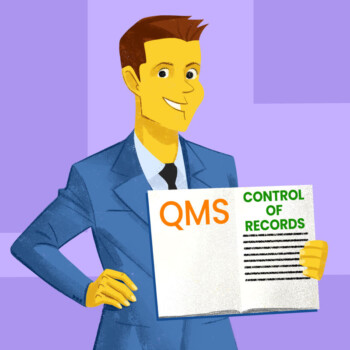When a medical device manufacturing company decides to outsource the entire production process to an external supplier, this is referred to as “contract manufacturing.” The practice of outsourcing presents various advantages, which we have often discussed in this column. However, in the case of contract manufacturing, it is to be considered a true business model: the company is structured from the outset with the understanding that production will not be managed internally from an operational standpoint.
An Opportunity for Start-ups
Take the case of a start-up: choosing an organizational model that includes fully outsourced production implies, for example, the absence of geographic constraints in selecting the company location, which does not necessarily have to be in an industrial area, as well as almost zero initial investments in equipment and tools, with the resulting economic benefits for a company just starting out in the industrial world. Also, in terms of personnel, outsourcing production processes allows for significantly streamlining the internal organization, keeping management costs low and processes highly efficient.
Selection of the Supplier
However, not everything that glitters is gold! Choosing to fully outsource production processes necessitates the ability to carefully select the supplier, as their work directly impacts the quality, safety, and performance of the medical devices for which the manufacturer remains responsible, and consequently, the company’s reputation.
The organization must establish criteria for evaluating and selecting the supplier, which must take into account the risk associated with the specific medical device. These criteria should be based on:
- The supplier’s ability to provide a product that meets the requirements.
- The supplier’s performance.
- The effect that the process has on the quality of the finished medical device.
The methodology for selecting the supplier must be defined by the company and often involves conducting second-party audits after an initial candidate identification phase. These audits aim to closely observe the business reality of the potential supplier, confirm preliminary evaluations, and identify potential issues. Due to the sensitivity of this phase, it is common to conduct the supplier selection audit as a team, which includes both internal company members and external technical experts skilled in conducting audits and/or in the industrial processes relevant to the type of products being outsourced.
Once the supplier is selected and qualified, they must undergo continuous monitoring and periodic reevaluation to ensure the ongoing maintenance of the quality of the medical devices over time. The criteria and methods for monitoring and evaluating the supplier are also defined by the company based on the same key principles that guided their selection and qualification.
Formalizing the Engagement
Beyond the economic agreements, in the case of contract manufacturing, it is crucial to formalize all aspects related to the quality, safety, and performance of the medical device in question and the associated processes. This information is included in the outsourcing contract, which we will delve into in this column in the coming weeks.
Effective Management of the Relationship with the Supplier
To successfully manage the outsourcing of the entire production of the device, there are several precautions that can be considered effective practices to prevent supply issues, such as the lack of critical components, as occurred during the recent SARS-CoV-2 pandemic:
- Conduct Advance Inventory Planning: This allows for optimal management of the availability of raw materials for manufacturing.
- Promote Effective Communication Between Parties: This is the key element to avoid delays and ensure everything runs smoothly. Every detail, from the initial phase to post-production, should be shared transparently (also thanks to the quality agreement), and any changes in subcontractors, costs, or materials must always be promptly communicated to the counterpart.
- Establish a Stable Supply Chain: Having a set of reliable suppliers ensures regular supply, even in case of unforeseen events.
- Implement a Robust Quality Management System: For each phase of the production process, the QMS ensures compliance with all applicable requirements for processes and products.
The Quality System Procedure
Typically, the company describes the criteria established for qualifying suppliers, monitoring their performance, and reevaluating them within the procedure related to supplier management, possibly in a dedicated section. This quality management system procedure is usually managed by the purchasing department in conjunction with the quality department.








